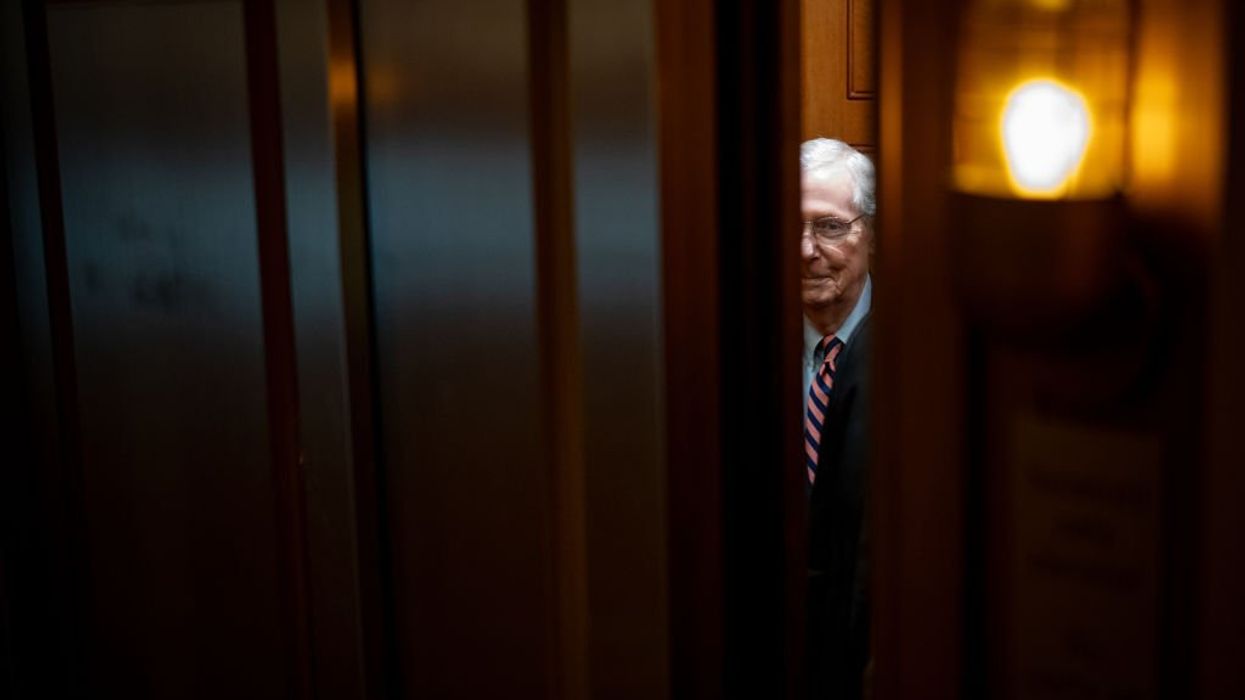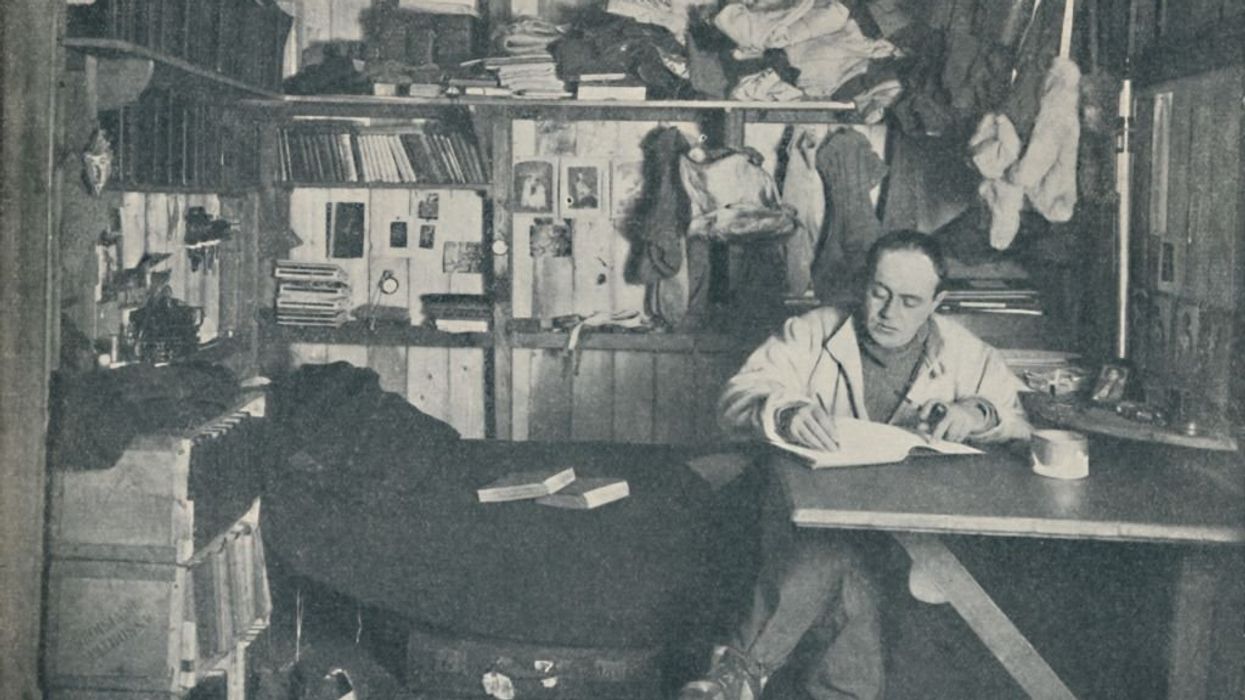© 2024 Blaze Media LLC. All rights reserved.
Pew's Shocking Find: The U.S. Has Become More Religiously Intolerant & Socially Hostile
September 20, 2012
"...a spike in religion-related terrorist attacks in the United States..."
Religion, considering its mass appeal and prevalence, plays a key role in global and domestic events. Considering the fact that sociopolitical issues are often dictated or impacted by personal faith, new findings from the Pew Forum on Religion and Public Life are potentially concerning, specifically when it comes to faith in America.
The non-partisan research organization found that religious intolerance is on the rise across the globe. But -- among the surprising data present within the study -- Pew notes that the United States' standing at both the governmental and societal level has devolved noticeably.
The report's main emphasis is on governmental restrictions on religious beliefs and practices. Shockingly, the report finds that 75 percent of the world's population (as of mid-2010) lives in nations "where governments, social groups or individuals restrict people’s ability to freely practice their faith."
The latest results, which are certainly disconcerting for religious-freedom advocates the world-round, take into account the year ending mid-2009 to mid-2010. A previous report published in 2009 by Pew found that there were 31 countries with high or very high restrictions on faith; in the newest report, this number jumped to 37. While the U.S. government isn't "high" on the list, it has officially moved from the low to the moderate level of religious restriction.

Here's how Pew describes the changes in government restriction that have unfolded at the state and local level:
Based on the information in the sources consulted for this study, the U.S. score on the Government Restrictions Index rose from 1.6 in the year ending in mid-2009 to 2.7 in the year ending in mid-2010, moving the U.S. from the low category of restrictions to the moderate category for the first time in the four years studied. (GRI scores 2.4 or higher are categorized as moderate by this study, while scores 4.5 or higher are categorized as high.)During the period from mid-2009 to mid-2010, a number of the sources used in the study reported an increase in the number of incidents at the state and local level in which members of some religious groups faced restrictions on their ability to practice their faith. This included incidents in which individuals were prevented from wearing certain religious attire or symbols, including beards, in some judicial settings or in prisons, penitentiaries or other correctional facilities. For instance, the U.S. Department of Justice reported that it was pursuing a lawsuit in federal court against the California Department of Corrections and Rehabilitation and various California officials on behalf of a Sikh prison inmate who, in March 2010, had been ordered to trim his facial hair in violation of his religious beliefs. The Justice Department said the state’s inmate grooming policy “imposed a substantial burden” on the man’s ability to exercise his faith.
This isn't the only measure worth noting. Equally troubling is America's score on Pew's Social Hostilities Index, which measures some of the non-government related religious incidents that have unfolded.
In mid-2009 the U.S. was at 2.0 and, in 2010, the score ticked up to 3.4. Again, this represents a move from a low to a moderate range, with 3.6 serving as the lowest point in the "high" sphere. Pew explains some of the reasoning for this change:
A key factor behind the increase in the U.S. score on the Social Hostilities Index was a spike in religion-related terrorist attacks in the United States in the year ending in mid-2010. In November 2009, for instance, U.S. Army Major Nidal Hasan – allegedly inspired by the U.S.-born radical cleric Anwar al-Awlaki – gunned down and killed 13 people and wounded 32 others at a military base in Fort Hood, Texas. In December 2009, Umar Farouk Abdulmutallab, a Nigerian national, attempted to set off a bomb hidden in his underwear while aboard a Detroit-bound aircraft. And in May 2010, Faisal Shahzad, a Pakistani-born resident of Bridgeport, Conn., attempted to set off a bomb in New York’s Times Square.Other forms of social hostilities involving religion also increased in the U.S. during the most recent year studied. In Murfreesboro, Tenn., for example, some county residents attempted to block the construction of a mosque in the spring of 2010 by claiming, as reported by the Justice Department, that Islam is a “political ideology rather than a religion” and that “mosques are political rather than religious in nature.” (The mosque officially opened in August 2012, but opponents are still challenging the mosque in federal court.)
These findings are anything but positive for a nation that prides itself on being a bastion for free speech and the free exercise of any and all religious beliefs. Furthermore, it points to negative societal patterns that may need to be addressed, specifically when it comes to intolerance and religiously-rooted violence.
Read the entire portion of the U.S. portion of the Pew report here.
Want to leave a tip?
We answer to you. Help keep our content free of advertisers and big tech censorship by leaving a tip today.
Want to join the conversation?
Already a subscriber?
Billy Hallowell is a digital TV host and interviewer for Faithwire and CBN News and the co-host of CBN’s "Quick Start Podcast."
Billy Hallowell
Billy Hallowell is a digital TV host and interviewer for Faithwire and CBN News and the co-host of CBN’s "Quick Start Podcast."
more stories
Sign up for the Blaze newsletter
By signing up, you agree to our Privacy Policy and Terms of Use, and agree to receive content that may sometimes include advertisements. You may opt out at any time.
© 2024 Blaze Media LLC. All rights reserved.
Get the stories that matter most delivered directly to your inbox.
By signing up, you agree to our Privacy Policy and Terms of Use, and agree to receive content that may sometimes include advertisements. You may opt out at any time.


